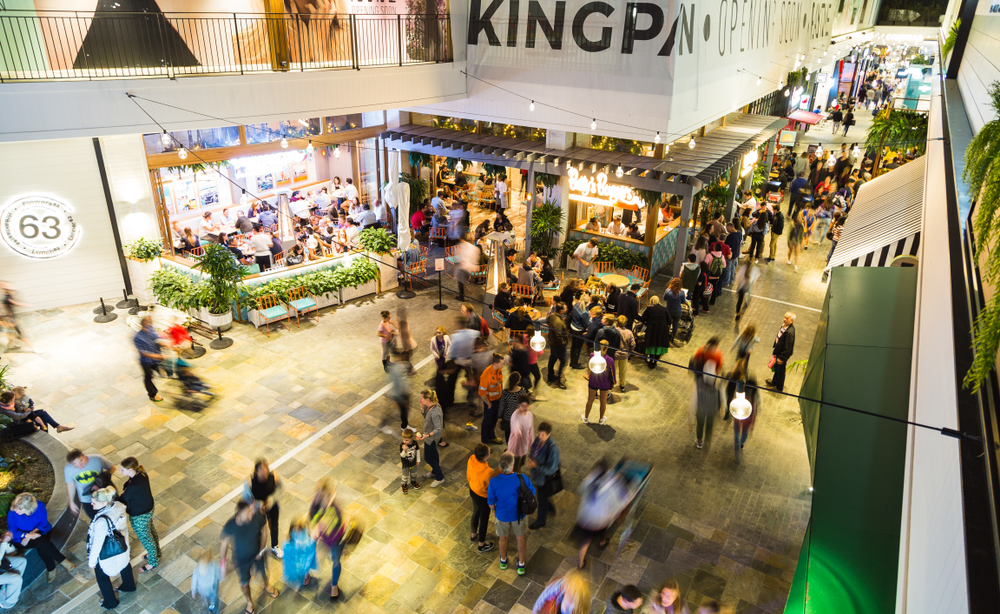Choosing The Right Location For Your Restaurant Or Cafe

Owning a food business requires careful planning in order to be successful – decisions that you make now can impact the success of your business in the future, both positively and negatively. One of the most crucial aspects of starting a food business is choosing a location, which should be one of the main points of focus when first drafting a business plan. The chosen location will ultimately decide the long-term fate of any restaurant, as it affects its everyday operations, profitability and potential expansion. Check out our top ten tips by our experienced foodservice consultants below:
1. Existing Infrastructure
If a location was previously occupied by another business, it’s best practice to have a foodservice professional inspect the location. This will allow you to work out how to proceed with the design or check if the site is viable for a foodservice business. It is always recommended that you look for spaces that were previously a restaurant or cafe, as this may make your life easier and reduce overall costs.
2. Affordability and Cost
The right location for your food business also affects your total budget. Will your budget be able to cover the rent for the site? How about the cost of moving in? These questions are important to address before choosing the potential location for your business. Your budget will become your guide in finding a suitable location. You will also need to determine if the site is available for lease and whether the terms of the leasing contract suit your needs or are beneficial to your food business.
3. Exposure and Accessibility
Finding the right location for your business is easier said than done. The exposure of the site is also crucial in selecting the right location. Firstly, you need to ensure that the site of your cafe or restaurant is accessible to the public and easy to find. Other factors to consider regarding exposure and accessibility are parking, street access, public transport routes and disabled access. Your location will affect your suppliers’ ability to deliver the needed materials for your cafe or restaurant, whether on a day-to-day basis or emergency needs.
4. Target Consumer
Knowing your target consumer is necessary for starting any restaurant or cafe. The location of the business will affect the type of consumer you are targeting. For example, if you intend on opening a cafe near a university, then your target consumer would likely be students who want to grab a coffee before going to class. If you intend on opening a cafe in a shopping centre, your target consumer may be quite different. It is important to research the area and determine the types of consumers that frequent businesses surrounding your preferred location.
5. Nearby Competitors
It is ideal for a business owner to thoroughly explore the prospective location of their food business. Competition within your location is only natural and choosing the right location where little direct competition exists is advisable for business owners.
To help assess nearby competitors, here are some questions you should ask yourself.
How many competitors have a similar menu?
Does my restaurant or café offer something interesting or unique that other competitors don’t have? Do you have a point of difference?
6. Growth Potential
The chosen location of your food business can affect the growth potential of your business. Before selecting your location, you should consider your goals for potential future growth. For example, does the location have potential for expansion? As you expand your business in the future, will the business utilise the maximum commercial space?
7. Construction Cost
Once you’ve chosen your location, another step in opening your restaurant or café is determining the construction cost of your business. Foodservice designers and shopfitters will give you an estimated budget on the design and fitout of the site, based on the requirements for your business. If you found a commercial space that housed a restaurant or cafe previously, this may reduce renovation costs, as the space may already have some of the infrastructure needed. You should also check lease terms to determine whether the landlord will be contributing towards the cost of the fitout.
8. Zoning
It’s important to check the commercial zoning laws with the local council prior to opening any restaurant or cafe. Most commercial zoning ordinances control activities such as waste management, air quality, noise level, building design, advertising signages, parking and more. When choosing a location, business owners should be aware of these zoning laws to avoid penalties and fines. It may also cause difficulty when applying for health and building approvals.
9. Local Council Requirements
Approval from your local council is a critical requirement to open your food business. Applications for businesses can be time-consuming and stressful for business owners, particularly the obtainment of a food licence and building approval.
The approval process can slow things down, both in the short and long term. Even with good documentation and evidence, the process can be tedious. Getting a building approval is important in preventing common issues like fines, or worse, being shut down. A food licence will give your business the approval to legally operate and ensure your business is following the expected procedures for food safety compliance.
At Food Strategy, we can help take away the paperwork headache for your food licence and building approval. We speed up the process by coordinating with the relevant authorities directly, compiling and submitting the forms, and answering all of the complicated questions from stakeholders.
10. Menu and Equipment
Lastly, the location of your restaurant or cafe will impact the menu and the equipment that you’ll be using. For the menu, procurement of local ingredients in the market and your partnership with suppliers is determined by your chosen location. The specification of kitchen equipment is dependent on what menu you’ll serve and the floorplan of your restaurant.
Do you need a Foodservice Consultant to come and take a look at your potential site? We’d love to help – give our team a call on 1300 013 003 or send us a message.
